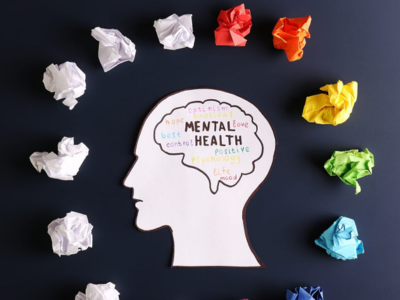In today’s fast-paced world, the pressures of our daily lives and work often leave us feeling stressed and overwhelmed. However, it’s essential to recognize that prioritizing our mental health can pave the way for a happier and more fulfilling life.
If you find yourself feeling consistently sad throughout the day, and your mornings no longer have the freshness they once did, know that you are not alone in this experience. There are 970 million people around the world living with mental health issues. This underscores the significance of giving due attention to our mental well-being.
In this blog, we will explore six effective strategies for taking care of your mental health. These practical approaches are designed to help you maintain emotional well-being and build resilience.
Talk to Someone You Trust
Talk to someone you trust, whether it’s your friend, family, or anyone else. Begin your conversation with what’s on your mind, and then start sharing openly. Once you have that open conversation, you will likely start feeling better. Finding someone who cares about you or listens carefully will automatically reduce half of your stress. When someone listens attentively and empathetically, it validates the person’s feelings and experiences. Feeling heard and understood can be highly reassuring and comforting.
Look After Your Physical Health
It’s crucial to take care of your physical health for better mental health and well-being. Make it a habit to engage in daily exercise for at least 30 minutes, or you can use these 30 minutes to participate in physical activities such as running, walking, yoga, dancing, and cycling. These activities promote a sense of well-being and serve as natural mood lifters, reducing symptoms of anxiety and depression.
Healthy diet
Maintaining a healthy diet is the key to a happy life. A balanced diet provides essential nutrients, vitamins, and minerals that are crucial for proper brain functioning. Nutrients like omega-3 fatty acids, B vitamins, zinc, and magnesium are beneficial for brain activities and can influence mood regulation.
Proper sleep schedule
Sleep is essential for emotional regulation. A lack of sleep can lead to irritability, mood swings, and increased emotional reactivity. Proper sleep helps you manage stress and emotional challenges more effectively. During sleep stages, our brain processes and regulates emotions that allowing us to wake up feeling fresh and in a better mood.
Do activities That You Enjoy
Allowing yourself to do what gives you pleasure can be anything you love, such as cooking, playing with your pet, reading a book, or watching your favorite TV shows. Having your favorite activities in your daily routine can make you feel happy all day and help you maintain good mental health.
Wrap Up
Remember, you are not alone, and there are things you can do to support your emotional well-being. Prioritizing mental health is essential. You can take care of your mental health in many ways. Share your overthinking with someone you trust, maintain a healthy diet, get proper sleep, and prioritize activities that bring you pleasure. These activities promote a sense of well-being and act as natural mood lifters and leading to a happier life. If you find yourself feeling like you cannot cope with the situation you are facing, then seek professional help.




